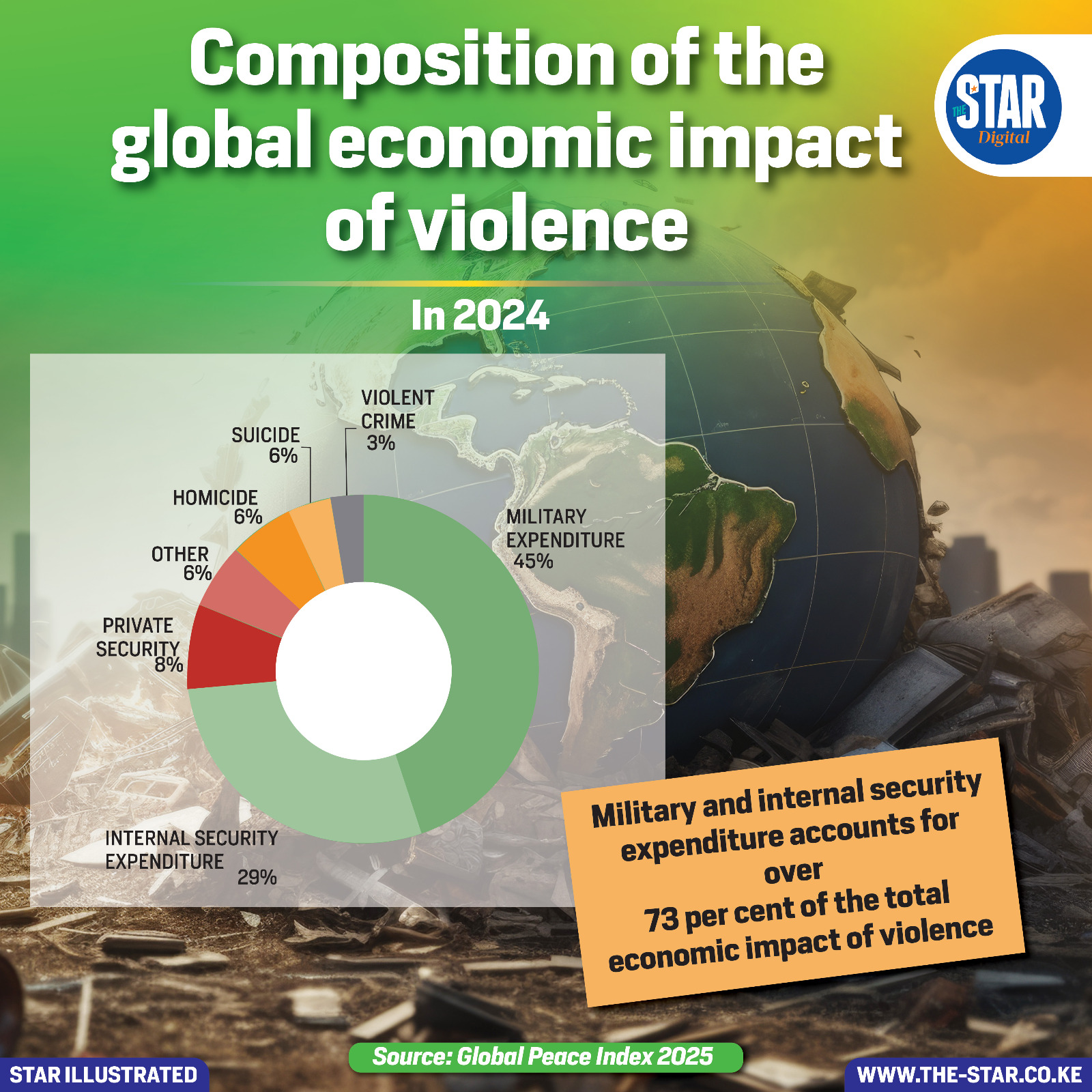
Countries with Highest Internal Displacements from Conflict & Violence
In 2024
Military expenditure alone accounted for 45% of the total financial impact.
In Summary

Audio By Vocalize

Global economic losses linked to violence remain staggering, with military and internal security spending dominating the landscape.
In 2024, military expenditure alone accounted for 45% of the total financial impact, underscoring the immense resources nations continue to allocate toward defence.
Internal security followed closely at 29%, reflecting the growing emphasis on policing, surveillance, and domestic stability measures.
Private security services contributed 8%, a notable share that signals rising concerns over personal and corporate safety beyond state provisions.
Meanwhile, the human toll of violence—often overshadowed by institutional costs—was reflected in the combined 15% attributed to homicide, suicide, and violent crime. Each of these categories registered 6%, 6%, and 3% respectively, pointing to the persistent societal and psychological consequences of violence.
The remaining 6% fell under “Other,” a catch-all for indirect costs such as displacement, productivity losses, and long-term trauma. While smaller in proportion, these impacts ripple across generations and economies, especially in regions grappling with conflict or systemic insecurity.
Altogether, military and internal security spending made up over 73% of the global economic burden, revealing a world still heavily invested in force-based deterrence and control.
The figures raise critical questions about the balance between prevention and reaction, and whether current spending patterns truly foster sustainable peace.
As governments and institutions assess their priorities, the data offers a sobering reminder of the financial weight violence imposes—not just in terms of lives lost or disrupted, but in the billions diverted from development, health, and education.

In 2024